The Instigator of the January 6th Capitol Riot is Running for President of the United States: A Critical Examination
By Bhcguide City Directory | Oct 27, 2024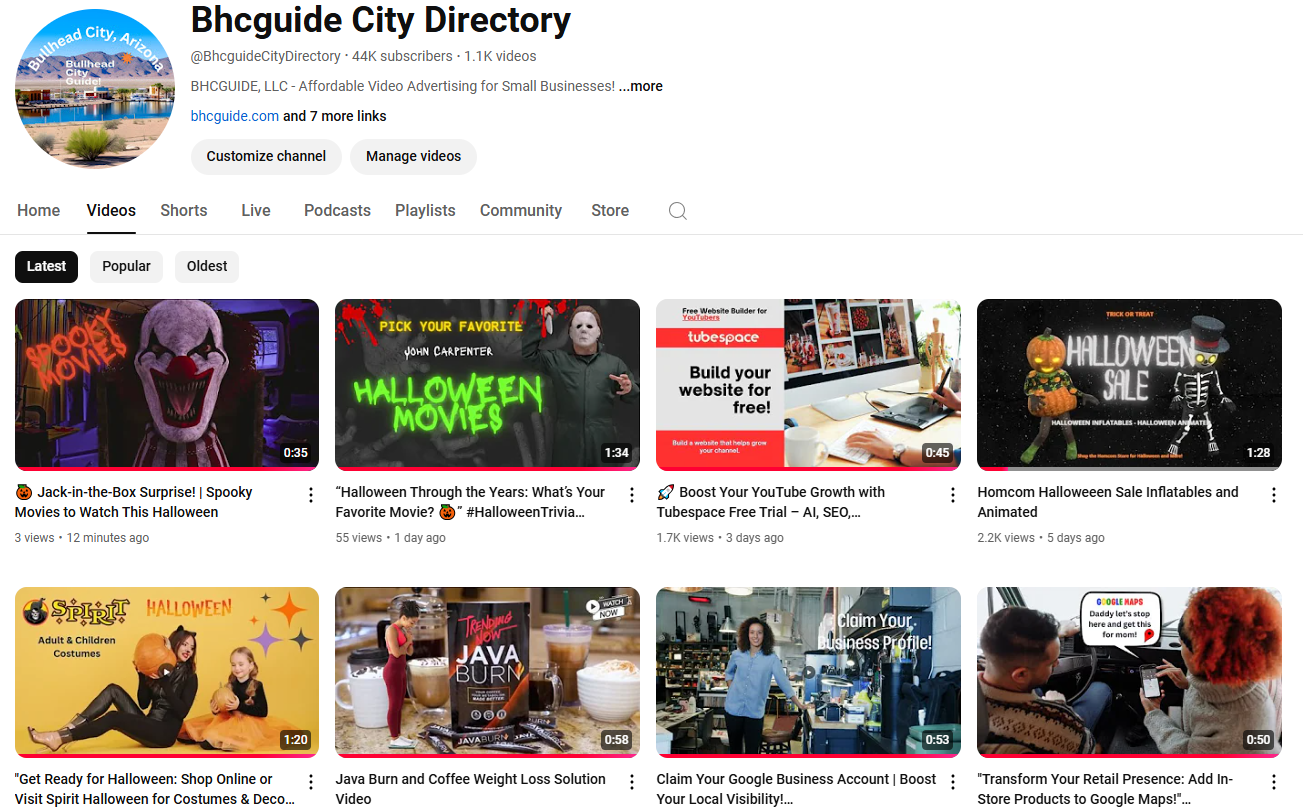
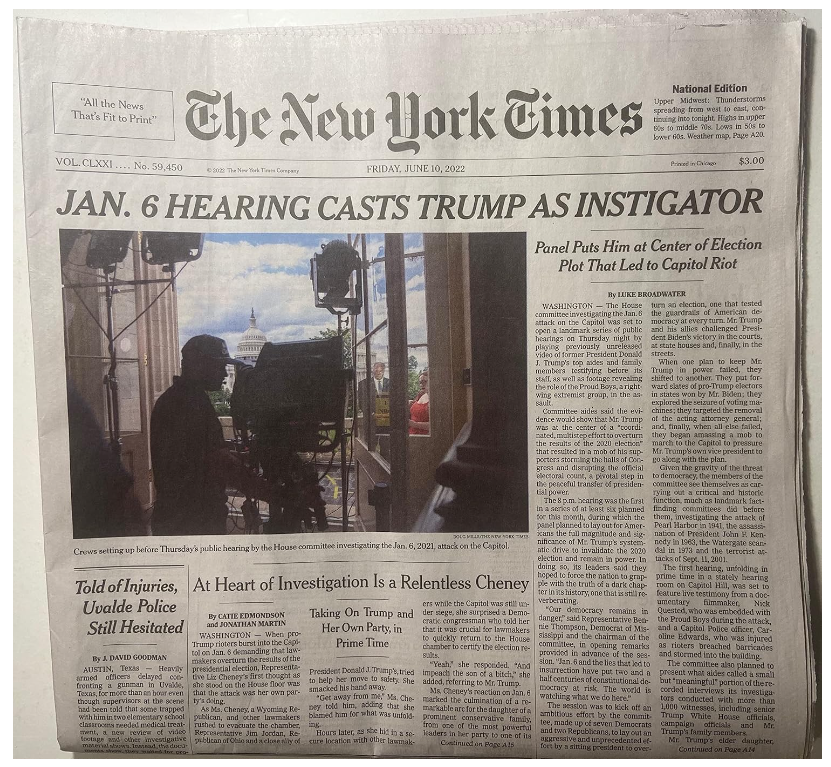
Trump Is Singled-Out As January 6th Instigator!
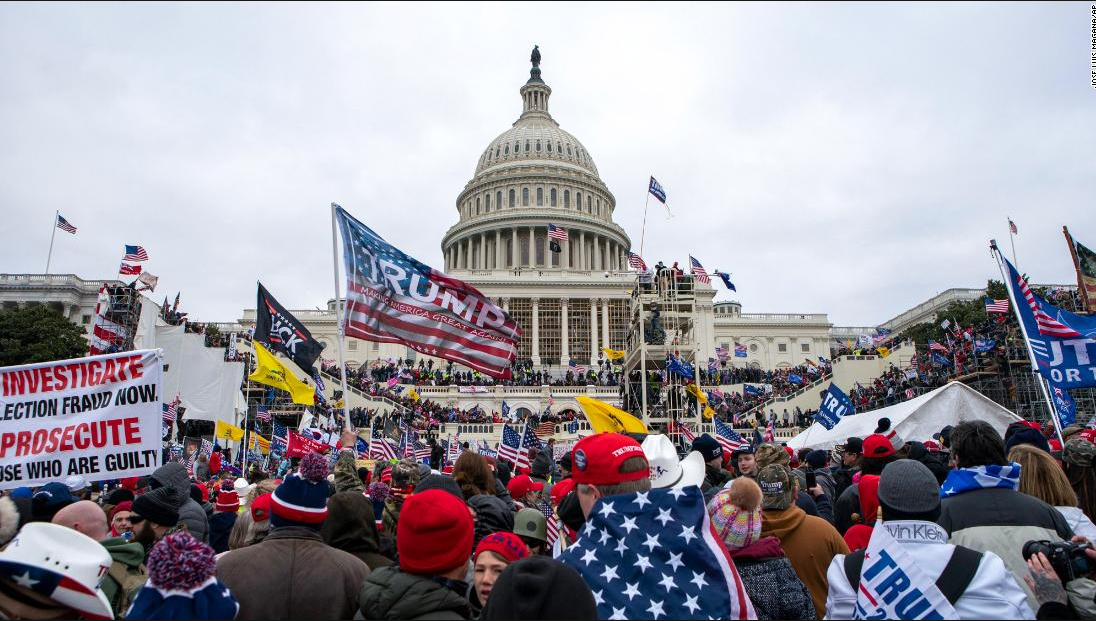
The political landscape in the United States has shifted dramatically in recent years, with unprecedented events capturing public attention. The individual widely considered to have instigated the January 6th Capitol riot is now a candidate for the presidency. This development raises crucial questions about accountability, the future of American democracy, and the impact of divisive rhetoric on our political discourse.
As I explore this unfolding situation, I find myself contemplating the implications of such a candidacy. What does this mean for the electorate? How will voters respond to a figure associated with one of the most contentious events in recent American history? These questions become crucial as we navigate the complexities of our current political climate.
The notion of a January 6th instigator running for office not only provokes strong opinions but also forces us to reflect on the integrity of our democratic processes. I invite you to delve deeper into this topic with me as we examine the ramifications of this candidacy and what it could mean for our nation’s future.
Can you believe the gall of the instigator running for the very position he attempted a coup to take the office he lost in 2020. Why would anyone vote to put him in the White House leggally?
This is the Most Consequential Election in American History.
VOTE TO KEEP OUR DEMOCRACY!
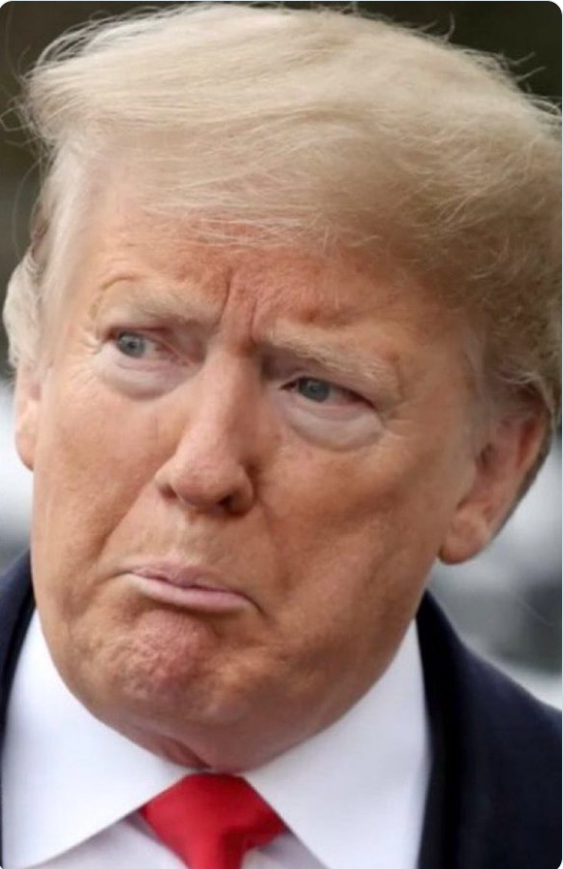
"A convicted felon, rapist, and instigator of the January 6th Capitol insurrection."
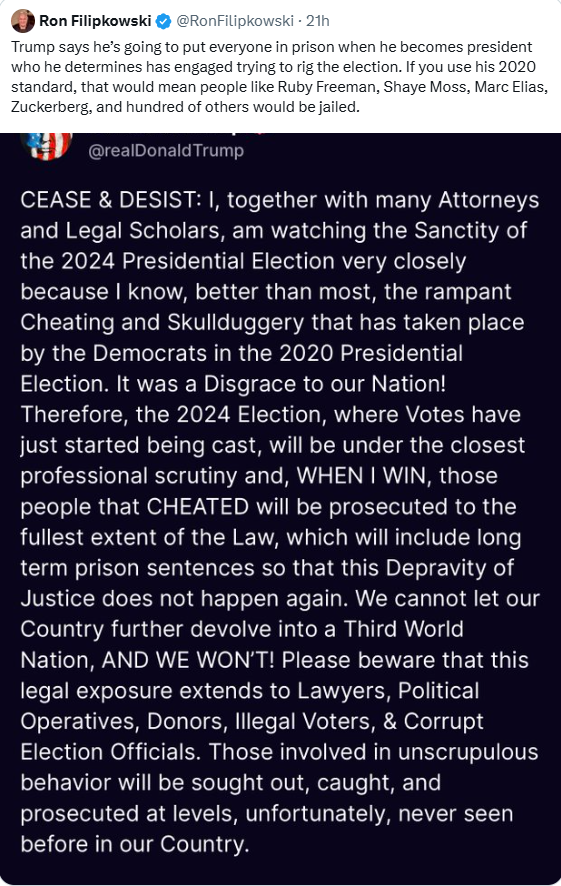
Background of the January 6th Capitol Riot
The January 6th attack on the U.S. Capitol marked a significant event in American history. Understanding the circumstances leading to the riot requires exploring the timeline of events, as well as the key figures and groups involved.
Timeline of Events
The events of January 6, 2021, commenced with a rally organized by supporters of then-President Donald Trump. The rally began in the morning, where Trump delivered a speech, reiterating claims of election fraud.
Following the speech, attendees marched to the Capitol. By 1 PM, rioters breached security and stormed the building, compromising a session to certify the Electoral College results. This led to numerous injuries, property damage, and the evacuation of lawmakers. The insurrection lasted for several hours, with law enforcement struggling to regain control.
By the evening, the National Guard was deployed, and a curfew was enacted in Washington, D.C. The Capitol building was secured later that evening, but the repercussions of the riot would continue to unfold for months.
Key Figures and Groups Involved
Several key figures played prominent roles during the Capitol riot. Among them, Donald Trump’s rhetoric was significant in mobilizing supporters.
Other notable figures included members of extremist groups like the Oath Keepers and the Proud Boys. These organizations were central to the planning and execution of the attack, with members seen engaging in violent confrontations with law enforcement.
The involvement of everyday citizens, fueled by misinformation, complicated the situation. Many who participated believed they were acting in defense of democracy, not realizing the implications of their actions. The combined influence of these elements created a chaotic atmosphere that led to the unprecedented breach of the Capitol.
Political Climate Leading to Presidential Candidacy
I examine the political landscape that has shaped the candidacy of an individual linked to the January 6th Capitol riot. This includes a focus on election claims and the stark political divide, along with how the public has responded to the announcement of their presidential run.
Election Claims and Political Divide
The narrative surrounding election integrity has significantly influenced current political sentiments. Many supporters of the candidate insist that the last election was fraudulent, despite numerous investigations and court rulings to the contrary. This belief has created a polarized environment where misinformation thrives.
The political divide is more pronounced than ever. Partisan media and social platforms amplify conflicting narratives, making it challenging for bipartisan dialogue. This division shapes perceptions of legitimacy and authority within government, enabling the candidate to rally a base that feels disenfranchised.
Public Response to Candidacy Announcement
Upon announcing a presidential run, public reactions varied widely. Supporters celebrated the move, seeing it as a stand against perceived injustices. Polls indicate that a substantial portion of the population continues to rally behind him, driven by a desire for change.
Critics, on the other hand, raised concerns over the implications of such a candidacy. Many view this as a threat to democratic norms and stability. Protests and public forums surfaced, highlighting the heightened tensions between opposing factions in the political landscape.
Legal Implications of Candidacy
The candidacy of an individual with a controversial past raises significant legal questions. I will examine the implications surrounding election laws and ongoing criminal proceedings.
Election Laws and Regulations
Running for president involves adherence to various federal and state election laws. Candidates must meet specific criteria, including age, citizenship, and residency.
I must also consider campaign finance laws that regulate contributions and expenditures. The Federal Election Commission (FEC) oversees these regulations to prevent corruption and ensure transparency.
Moreover, any violation of these laws could lead to penalties, including fines or disqualification from the election. The potential legal challenges can also affect public perception and campaign viability.
Criminal Charges and Court Proceedings
I must address any existing criminal charges stemming from events related to the January 6th Capitol riot. Legal proceedings can impact a candidate’s eligibility and political standing.
If convicted of a felony, disqualification from holding office can occur under the 14th Amendment. This situation would also sway public opinion and influence voters' decisions.
Additionally, ongoing trials can distract from campaign efforts. The uncertainty around court outcomes can deter financial backers and affect voter trust. These legal challenges complicate the candidacy and shape the overall campaign landscape.
Campaign Strategies and Policies
In this section, I will explore the campaign message, agenda, and media strategies for the presidential run. These elements are critical to understanding how the candidate seeks to connect with voters and shape public perception.
Campaign Message and Agenda
My campaign message focuses on appealing to a broad base of supporters by emphasizing themes of patriotism and restoration of traditional values. Central to my agenda is the promise to "Make America Great Again," which resonates with many voters.
Key policy proposals include:
- Economic Growth: Advocating for tax reductions and deregulation to stimulate job creation.
- Immigration Reform: Pushing for stricter border security and measures to reduce illegal immigration.
- Public Safety: Prioritizing law enforcement funding to ensure community safety.
This strategy aims to position me as a strong candidate who prioritizes American interests.
Media and Public Relations
I plan to leverage both traditional and social media platforms to broaden my reach. Understanding the significance of narrative control, I will focus on direct engagement with supporters through regular updates and livestreams.
My media strategy includes:
- Press Releases: Frequent updates to keep the media informed about campaign activities.
- Social Media Engagement: Utilizing platforms like Twitter and Facebook to communicate directly with voters.
- Interviews and Talk Shows: Seeking appearances to discuss my policies and engage with the public.
Through these tactics, I aim to maintain strong visibility and encourage community involvement in the campaign.
Impact on National Security
The potential candidacy of the individual linked to the January 6th Capitol riot raises significant concerns regarding national security. Key areas of focus include security assessments and the governmental response to potential threats.
Security Assessments and Risks
I recognize that the actions leading to the Capitol riot have forced a reevaluation of security measures across the nation. Increased attention is now given to domestic threats.
Key risks include:
- Radicalization: Ongoing political discourse may further radicalize individuals or groups.
- Terrorism: The risk of politically motivated terrorism remains high.
- Civil Unrest: Future events could spark violent confrontations similar to those on January 6th.
These factors necessitate thorough risk assessments to anticipate and mitigate threats to national safety.
Governmental Response and Preparedness
I believe the government must enhance its preparedness for potential unrest driven by political rhetoric. This involves revisiting emergency response protocols and intelligence-sharing between agencies.
Essential actions include:
- Increased Funding: Allocating more resources to local law enforcement for monitoring potential threats.
- Collaboration: Strengthening partnerships between federal, state, and local agencies to improve communication.
- Public Awareness Campaigns: Educating the public about recognizing and reporting suspicious activities can mobilize community support for safety.
By implementing these strategies, the government can better safeguard national security against future incidents.
Public Opinion and Electoral Support
I find it essential to examine how public opinion is shaping the electoral landscape as the instigator of the January 6th Capitol riot runs for President. The divide in voter sentiment and the contrasting support bases significantly influence his candidacy.
Polls and Voter Sentiment
Recent polls indicate a mixed response to the candidate's campaign. According to a survey by [Polling Organization], 42% of likely voters support him, while 48% express disapproval. This reflects a polarized electorate, where opinions closely align with party affiliation.
Among Republican voters, support stands at a strong 75%, with many citing his stance on key issues as a reason for their backing. In contrast, among independent voters, the numbers shift dramatically. Only 30% express any favor towards him, showing a significant challenge in appealing to this critical demographic.
Support Base and Opposition Groups
His support base primarily consists of loyalists from previous campaigns and members of fringe groups that align with his rhetoric. I observe that social media platforms amplify this support, often shaping narratives and rallying grassroots movements.
Opposition groups are also highly organized. Various organizations have mobilized efforts to counter his campaign, leveraging public forums, protests, and digital campaigns. According to [Opposition Research Group], nearly 60% of voters against him cite his role in the Capitol riot as a primary concern.
The vitality of these dynamics plays a crucial role in influencing the electoral landscape leading up to the election.
Prospects and Predictions for Election Outcome
Analyzing the prospects and predictions regarding the election outcome involves assessing political analysts' perspectives and considering potential scenarios and their impacts. The current political climate is shaped by various factors that could influence voter sentiment and decisions.
Political Analysts' Perspectives
Political analysts are divided in their forecasts. Some believe that the instigator's candidacy will energize the base, while others argue it could alienate moderate voters. The polarization in politics suggests that support may solidify among loyal followers, contributing to their turnout.
Key points from analysts include:
- Base Mobilization: A strong alignment with the core supporters can drive higher voter turnout.
- Voter Reactions: Some moderate Republicans and independents may distance themselves due to the Capitol riot associations.
- Media Coverage: The extent of media scrutiny may affect public perception and voter sentiment as the election approaches.
Potential Scenarios and Impacts
Several scenarios could unfold based on the candidate's campaign strategy and public response. A successful campaign might focus on issues that resonate with voters, such as the economy and immigration.
Important potential impacts include:
- Heightened Voter Engagement: Increased interest in the election could lead to higher overall turnout.
- Third-Party Influence: Rising third-party candidates could siphon votes from the main candidates, altering expected outcomes.
- Swing State Dynamics: Key battleground states may experience significant shifts in voter support based on recent events, shaping the final results.
Analyzing these scenarios will provide valuable insights as the election date approaches.
Rudy Giuliani is ordered to turn over assets to 2 Georgia election workers.